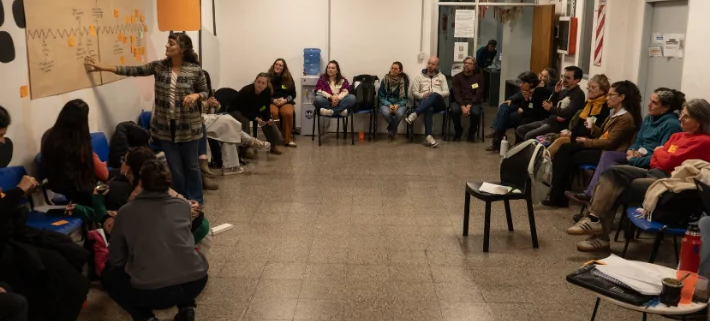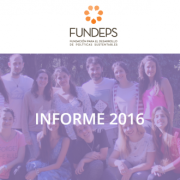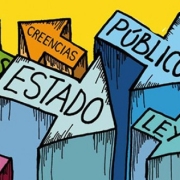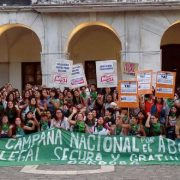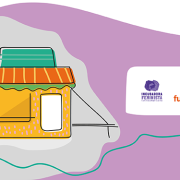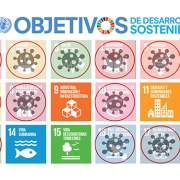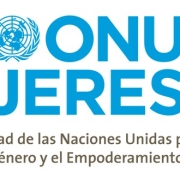We held the second meeting “Networks of Commitment and Care”
More than 40 healthcare professionals from across the province took part in the meeting held on August 2. It was a space for training and exchange aimed at strengthening access to sexual and reproductive health with a diversity perspective and a rights-based approach.
With the participation of more than 40 healthcare professionals, we held the second meeting “Networks of Commitment and Care” on August 2 in the city of Córdoba. It was a space for training, active listening, and exchange, aimed at strengthening capacities, sharing experiences, and highlighting good practices in sexual and (non) reproductive health with a diversity perspective and a rights-based approach.
This initiative, promoted by the Gender and Diversity area of Fundeps in collaboration with Belén Carcedo from the Comprehensive Health Clinic and Sofía Menoyo, member of Socorristas en Red, brought together professionals from various localities: Agua de Oro, La Granja, Jesús María, Santa Rosa de Calamuchita, Villa Dolores, Huinca Renancó, La Paquita, Corral de Bustos, Bell Ville, Paso Viejo, Alta Gracia, and Villa Los Aromos.
On this occasion, the meeting focused, on the one hand, on the medical practice of Manual Vacuum Aspiration (MVA) as a safe, outpatient method of pregnancy termination recommended by the World Health Organization; and, on the other hand, on the challenges related to providing care with a rights-based approach for children, youth, and trans masculinities.
At a time when defunding of public health policies and stigmatization are affecting access to pregnancy termination, we updated and provided legal tools for healthcare teams that continue to guarantee the right to safe and free abortion in our province, under the terms of Law 27.610. Fundeps attorneys Mayca Balaguer and Luz Baretta offered an overview of the current legal framework on health from a human rights perspective. The emphasis was placed on the rights of children and adolescents, in light of key principles such as progressive autonomy and the best interests of the child, incorporated into the Civil and Commercial Code in 2015—principles that guide various health practices, including voluntary and legal termination of pregnancy.
In the afternoon, we began the work session coordinated by Santiago Merlo, a teacher and trans activist, member of the Trans Fatherhood Network, with whom we reflected on approaches within the health system from a diversity perspective. We reviewed the importance of dismantling our own prejudices and making room for trans experiences within the consultation space, using inquiry as a primary tool when faced with uncertainty: “There is no need for us to assume the sexual orientation or gender identity of those seeking care; asking them is a relief both for them and for health professionals. It is a fundamental resource,” Santiago stated.
Finally, we collectively reconstructed the milestones that enabled us to advance the implementation of AMEU practices in the province. We discussed the main challenges faced in each territory and the strategies that we can continue to strengthen through network-based work, which is one of our main commitments at Fundeps.
When asked what “accompanying” means, Camila Recalde, a family physician from the Cruz del Eje area, explained: “For me, it is about being able to put oneself in the place of the other, in that moment, and understanding that the people who come to consultations are subjects of rights, and that we are there to accompany decisions and processes with a respectful and compassionate perspective toward what that person is experiencing at that time.”
This was yet another opportunity to recharge our energies and continue working together to strengthen access to comprehensive sexual health care in Córdoba, with a diversity perspective and a rights-based approach.
Contact:
Romina Pezzelato – romina.pezzelato@fundeps.org

